The Hiking Habits That Slow Aging Will Make It Your Fave Fall Workout
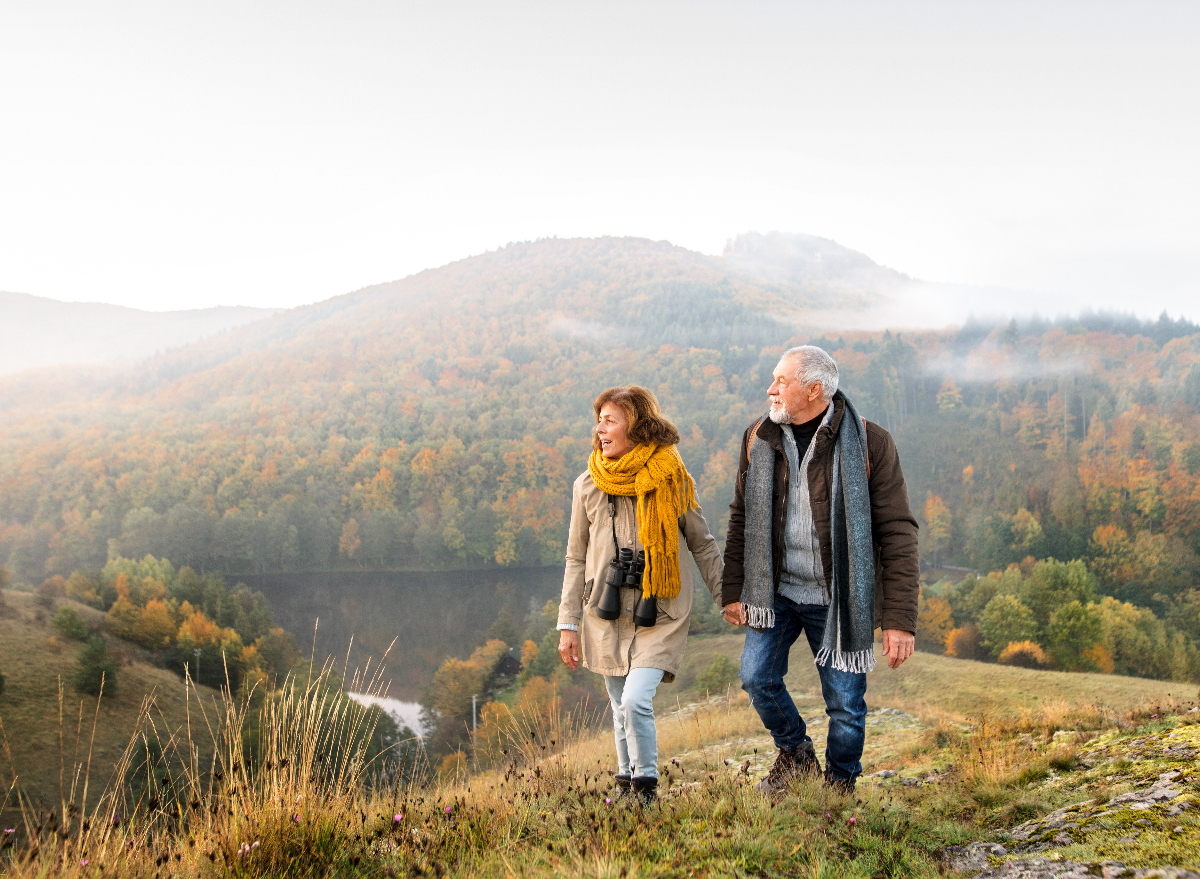
Hiking is an incredible outdoor activity that can—and should—be enjoyed by every single age group (while following the proper safety precautions, of course). Not only is it so much fun to do, but hiking has proven to be extraordinarily healthy—physically, mentally, and socially. Check out this inspiring list of hiking habits that slow aging, making it a truly irresistible activity to plan this fall.
There are hiking trails all over the country, and the best part about going on a hike? It’s such an affordable activity to do. All you need is a pair of comfortable hiking shoes, sunscreen, and plenty of water to keep you hydrated. You can be on your way to some good old-fashioned exercise, have the opportunity to snap some amazing pictures, and make beautiful memories that will last a lifetime.
The calorie burn is extraordinary, and your knees and ankles will thank you!
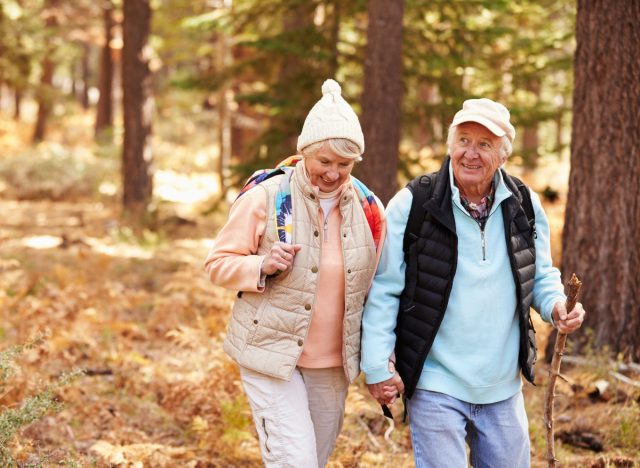
Regardless of the kind of trail you decide to venture on for your journey, taking a hike will provide an amazing total-body workout. You can burn as many as 500 calories while hiking, especially if you add in plenty of hills, according to Health Fitness Revolution. Altitude is king when it comes to losing weight! And the sweetest thing about this cardio workout? Trails are typically easier on your joints than concrete or blacktop would be for running and walking, so your knees and ankles will seriously thank you after your trek.
Related: What Science Says About the Exercise Habits That Slow Aging
The physical workout is a stellar way to tone your body while having fun.

Your lower body really exerts itself while you’re hiking, specifically your glutes, quads, and hamstrings. If you want to give it your all and really challenge your upper body strength, Hiking Made Easy recommends loading up your backpack.
If your hike is on level ground, keep in mind that your glutes won’t feel as much of a workout. If you’re really enthusiastic and want to increase your load, a heavy backpack to carry on your hike will do the trick. Some individuals even add weights. A heavy bag will work your hamstrings quite a bit, too. And as far as your quad muscles are concerned, venturing off-hill for some rough terrain can add to your workout intensity. But beware; if you’re not in good shape, you will feel the pain afterward.
Related: The Top Benefits Of Going On A Hiking Trip, Science Says
You can reduce the risk of so many chronic health issues by participating in this outdoor activity.
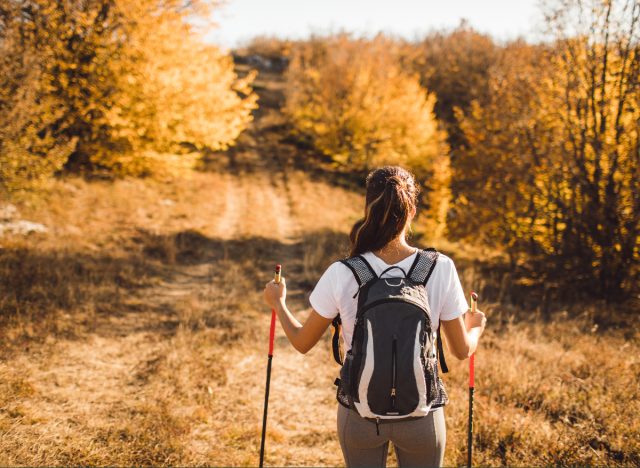
Hiking will strengthen your bones and muscles, better your heart health, and the fresh air will improve your breathing. Physical activity such as hiking can help reduce the risk of many chronic conditions, including diabetes, obesity, osteoporosis, arthritis, heart disease, hypertension, and anxiety, according to the American Hiking Society.
For instance, doing some downhill hiking is apparently twice as effective at enhancing your glucose tolerance and removing blood sugars (via Health Fitness Revolution). The result? It decreases your cholesterol and blood pressure. And did you know you can potentially control or prevent diabetes when you hike by bringing your blood sugar levels down? Hiking targets your muscles, which transports glucose out of your bloodstream to provide energy. Research also indicates that physical activity like hiking may even help with breast cancer recovery.
It’s a natural stress reliever.
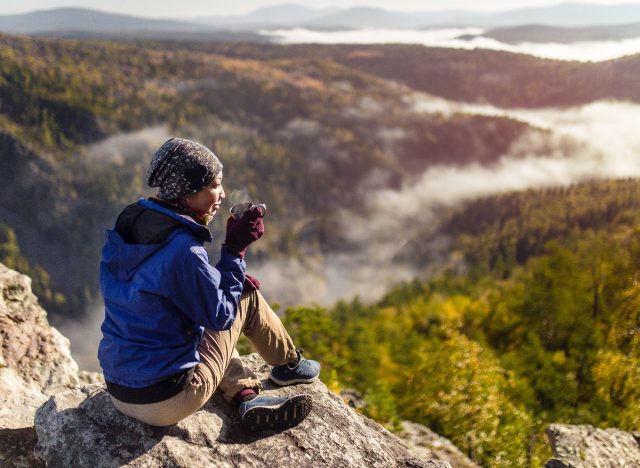
A good old-fashioned hike fills the soul with so much goodness. Research has shown that spending time in nature helps alleviate stress (via Harvard Health Publishing). Since stress is a major contributor to heart disease and high blood pressure, we are suggesting that you literally go take a hike!
A study performed by the University of East Anglia found that higher exposure to green space is related to good health. The research involved a worldwide review of data from over 290 million individuals. Professor Andy Jones, co-author of the study, explains, “We often reach for medication when we’re unwell but exposure to health-promoting environments is increasingly recognized as both preventing and helping treat disease. Our study shows that the size of these benefits can be enough to have a meaningful clinical impact.” Sounds like fresh air in the great outdoors can be the best thing for your body.
It’s a great activity to enjoy with friends or a loved one.
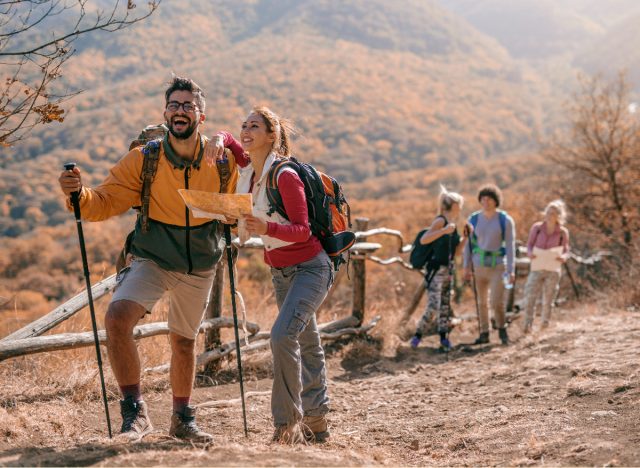
What better activity to share with a bestie or significant other than some laughs and challenges on a hiking trail? Spending time together can be time well-spent for your relationship. Whether you make it an afternoon jaunt or book a weekend away, a hiking plan is a healthy plan to make, so give it a try!
Your mental health will thank you.
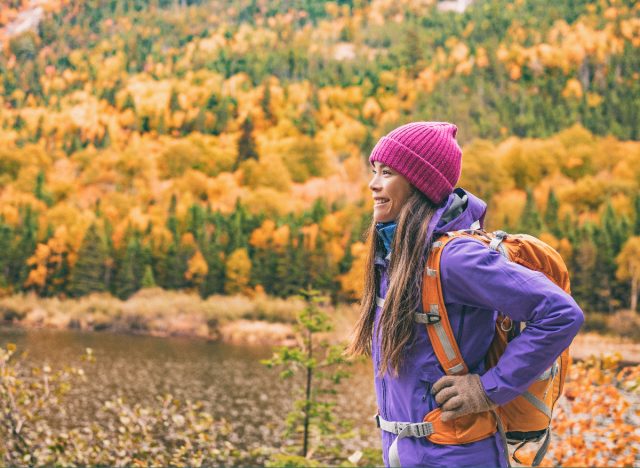
Getting outside on the trails is a huge mood booster and works wonders for your mental health. Hiking can also reduce the risk of feeling depressed, according to research. Embracing the fresh outdoors, by feeling, smelling, and seeing some beautiful nature may be exactly what you need!
One example is a study published in the Proceedings of the National Academy of Science. The findings reveal that individuals who walk in nature are less likely to be depressed. The participants tested walked for 1 ½ hours in nature and had less activity in the part of the brain related to depression than participants who walked in city areas bustling with traffic.








